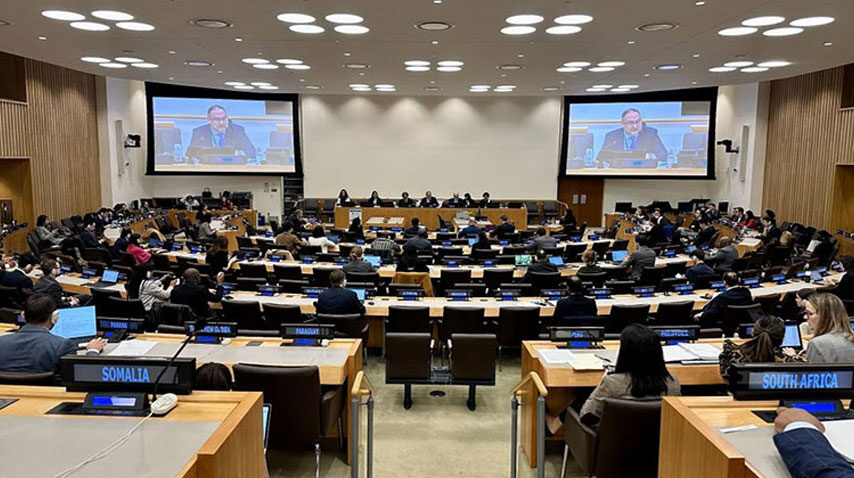UNITED NATIONS(WNAM Monitoring): Pakistan on Monday was unanimously elected Chairman of the UN Disarmament Commission as it opened its 2024 session amid rising geopolitical tensions and concerns over deepening mistrust between some of the world’s largest military Powers.
A vital subsidiary organ of the UN General Assembly, the Commission makes recommendations on various issues in the field of disarmament.
“I assure you that – in keeping with Pakistan’s ethos and tradition of multilateral diplomacy – I will be an honest broker and a facilitator of dialogue,”
Ambassador Usman Jadoon, deputy permanent representative of Pakistan to the UN, said after his election, by acclamation, to head the Commission’s 2024 session.
“I will be listening to you patiently and attentively, and collaborating with the members of the extended bureau to utilize the available time efficiently and effectively,” he told delegates. The UN Under-Secretary-General and High Representative for Disarmament Affairs, Ms. Izumi Nakamitsu, was present.
“It is a matter of great honour and privilege to have been elected as the Chairperson of the UN Disarmament Commission’s 2024 substantive session,” Ambassador Jadoon said.
“I extend my gratitude to the Asia-Pacific Group for nominating me to this position, and to all UN Member States for reposing their confidence in me to lead the Commission’s deliberations this year.”
The Disarmament Commission, he said, plays a crucial function as a “deliberative body” on disarmament issues. ” It is distinct from the First Committee – which deals with questions of disarmament and related international security issues from a wider and higher political plane – and the Conference on Disarmament – which acts as the ‘single multilateral disarmament negotiating forum’ to conclude legally binding instruments.”
The UN disarmament machinery, Ambassador Jadoon said, has delivered in equally challenging times in the past, and remains well equipped to do so in the present, with the right amount of political will and attention.
“We need flexible attitudes based on mutual respect and a genuine understanding of the security concerns of all to build consensus-based and inclusive solutions.”


